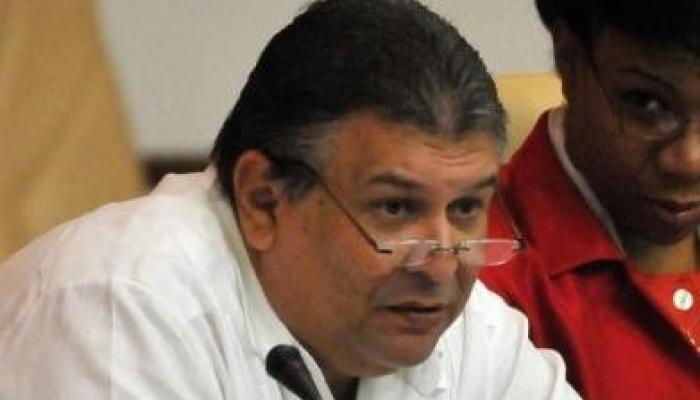Cuban Economy Expects to Stop Downward Trend in 2015
The Cuban economy expects to stop the downward trend of the last years in 2015, but this will demand organizational discipline and efficiency, explained Vice President Marino Murillo.
In the first working day of parliamentary permanent commissions, the Minister of the Economy assured the growth rate which he assured won't be low but it will not be high enough as is needed, between 5 and 7% of the GDP.
Murillo emphasized on the need to work hard, as the plan will have to be made in a convulsive World, in which the United States will worsen its economic, financial and commercial blockade together with harassment to companies and banks that do business with Cuba.
That hostile policy has made that after the sanction against French BPN Paribas no financial entity gives credits to the island, he assured. For next year, internal reserves of efficiency and resources will go to reactivate fundamental sectors like the manufacturing industry, construction, trade and repair of household devices, hotels, restaurants, agribusiness and forestry.
Regarding these priorities, lawmakers were informed that all necessary support will go to the food industry, steel, light and chemical industries, supposing a structural change in imports, as more raw materials and inputs will be bought to give domestic production more aggregate value, instead of importing more finished products.
He referred that in those sectors there are potentialities to be exploited despite technological obsolescence and backwardness of the industrial park, because --he added-- growth to Cuba means the replacement of imports, a boost to national production and domestic retail trade.
Parliamentary commission of economic issues also was informed details on the execution of the State budget of 2014 and the one projected for 2015, information which was repeated in the 11 work groups for better understanding and active participation of parliament members in national life.
Washington Fines German Bank for its Dealings With Cuba
The second largest German financial institution, Commerzbank AG, was fined by the US government for a billion dollars for conducting business with Cuba.
The Financial Times said this Tuesday that the German company is headquartered in Frankfurt and is the second largest in the country after the Deutsche Bank, which is listed as the fifth most powerful bank in the world.
Commerzbank AG is obliged to disburse a penalty of one billion dollars, according to US provisions establishing penalties for bank agents having made transactions linked to Cuba through US branches.
According to Financial Times, the German institution agreed last September to pay 650 million dollars after being accused of conducting financial transactions with Cuba, Iran, Sudan and other countries sanctioned by the United States.
The report adds that Washington launched a full-scale investigation against European banks, potential violators of the sanctions regime.
Some of the European banks investigated by the United States are the German Deutsche Bank, the French Crédit Agricole and Société Générale of France, and the Italian UniCredit SpA.
The New York Times published on July 9 that the Treasury Department fined Commerzbank more than 500 million dollars for making transfers through its subsidiaries toward Cuba, Democratic People's Republic of Korea, Myanmar, Iran and Sudan.
Havana constantly denounces United States' extraterritorial sanctions against it, with economic entities from almost all over the world joining the Cuban protest.
Good Flow of Tourists from the Southern Cone to Cuba
The number of tourists from the Southern Cone to Cuba amounted to 11,480 during November, which represents 99% of the expected figures, said here the Tourism advisor, Niurka Martinez.
According to a comment from Martinez to Prensa Latina news agency, from September of this year a substantial increase has been registered in the volume of tourist arrivals from Chile, Paraguay, Peru, Brazil, and Uruguay, unlike Argentina, where the volume decreased significantly owing to the rising prices of tourist packages and airfare, which discourages potential travelers.
However, Martinez is optimistic about the immediate future, in particular taking as basis the increased arrival of Argentinean tourists, which has been taking place since September, and the measures taken in the matter of promotion, offers and the start of direct flights of Argentinean airlines starting on January 2015.


